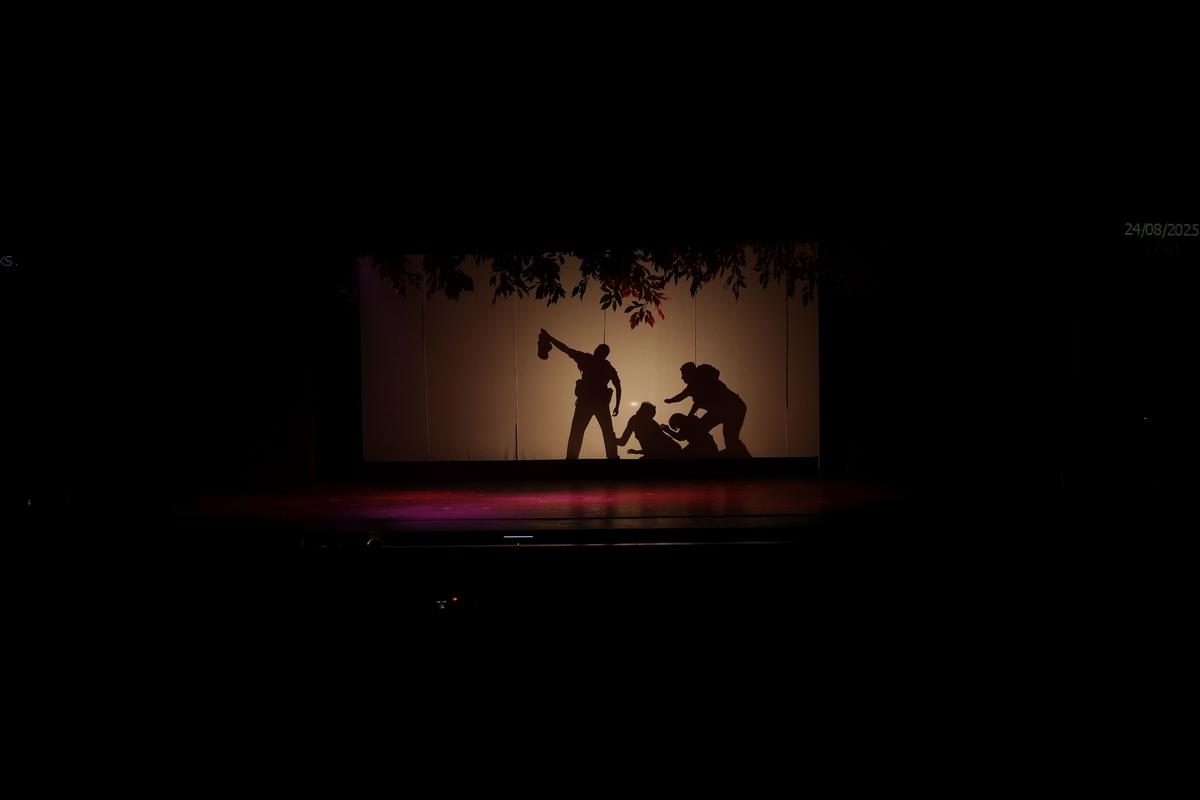From the Tamil play on Indo-Pak war.
| Photo Credit: Special Arrangement
Doing a play based on real events is difficult. There must be absolute fidelity to the truth. And yet the play must not be stodgy like a documentary. The difficulties get compounded when the subject you are dealing with is a war. Theatrekaran in collaboration with NCC-UDAAN was, therefore, taking on a challenging theme, when the troupe decided to stage a play on the 1971 Indo-Pak war. But to their credit, the directors of the play (Raghavendr and Sabarivas) handled the subject sensitively.
The play 1971 war: Oru Vetri Thorkkadikkapattadhu (concept and curation by retired Major General Indrabalan), staged in Narada Gana Sabha, showed the brutalities inflicted on the East Pakistanis by Tikka Khan; Chief of Army Staff Manekshaw’s advice to Prime Minister Indira Gandhi to defer war against Pakistan until conditions were more favourable; India’s attack on Pakistan through air, sea and land; and Pakistan’s surrender to the Indian forces.

The actors portrayed battle scenes effectively, sometimes resorting to shadow play.
| Photo Credit:
Special Arrangement
The actors portrayed battle scenes, guerilla warfare and the horrors unleashed against the East Pakistanis effectively, sometimes resorting to shadow play. When Lt General Niazi of Pakistan says to Major General J.F.R. Jacob that India is a Hindu country, the latter points out that the Indian military forces best represent the melting pot that India is — Jacob is a Jew, Idris Hasan Latif of the Air Force is a Muslim, Manekshaw is a Parsi, and Lieutenant General Aurora is a Sikh. Maybe such an exchange between Niazi and Jacob didn’t actually take place, but it was heartening to hear it being said on stage.
Loud background music drowned out dialogues, for instance Mujibur Rahman’s spirited address to his people. Scenes where actors delivered important lines would have been more poignant without any music. Sabarivas explained that since many of the younger generation seemed unaware of the 1971 conflict and of India’s victory in the war, the title Oru Vetri Thorkadikkapattadhu (a victory that has been defeated) was chosen for the play. Wouldn’t Oru Vetri Marakkapattadhu (A victory that has been forgotten) have been more apt?
Eighty-seven year old Major Krishnaswamy (later Colonel), who led his forces deep into enemy territory during the war, addressed the audience after the play. He said that some years ago, when he visited Dhaka, Sheikh Hasina, the then Prime Minister of Bangladesh asked him, “When did you last visit Dhaka?” To which he replied, “Last time, I didn’t visit. I entered Dhaka.” He added that another difference was that in 1971, he had been holding a gun, but was now holding his wife’s hand. Hasina joked, “What you are now holding is a more potent weapon than a gun.”
Published – September 15, 2025 05:37 pm IST

